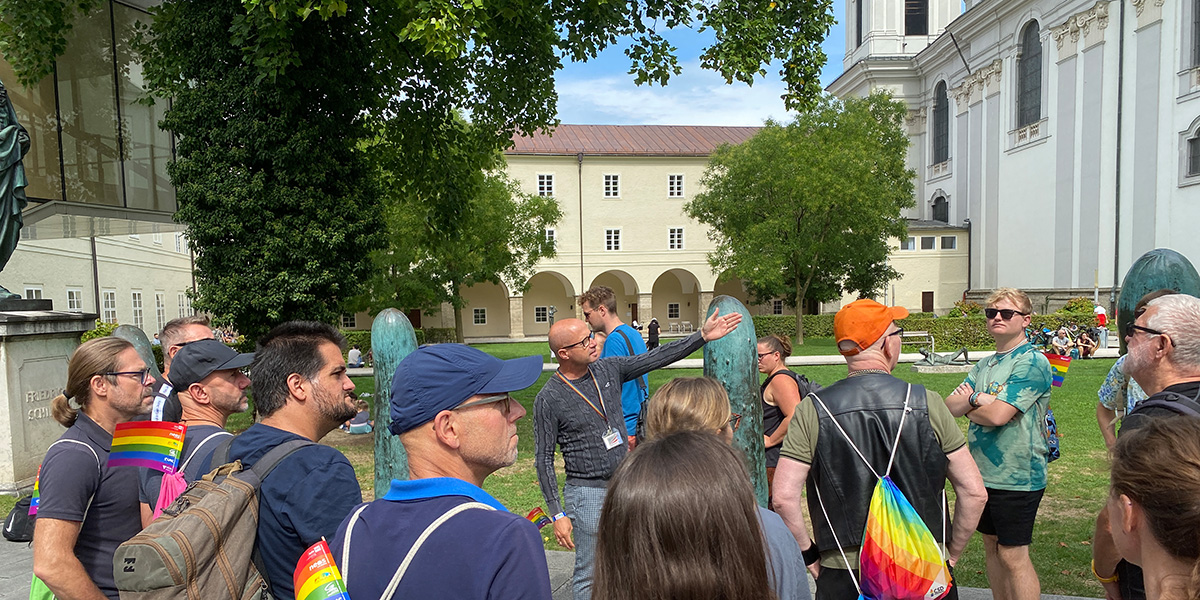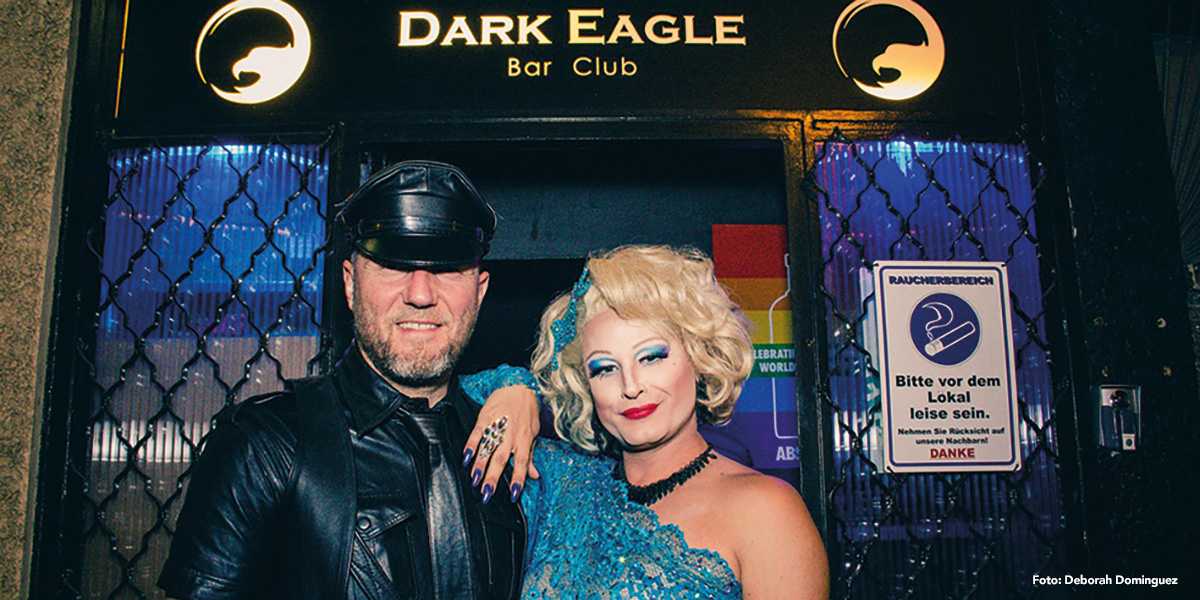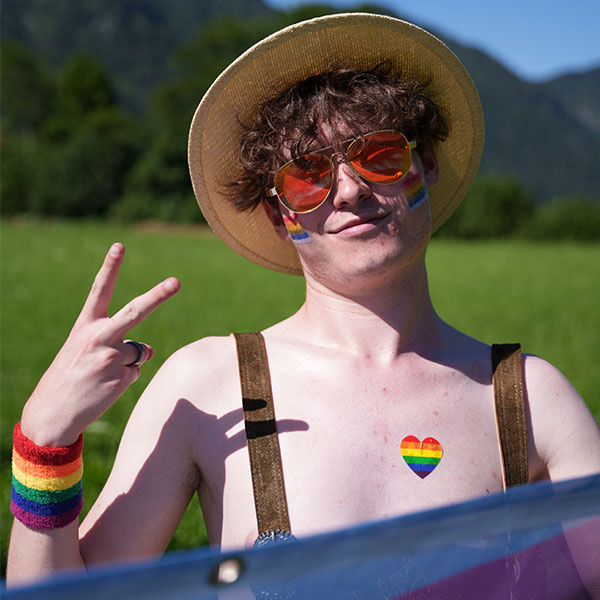
The rainbow on the countryside
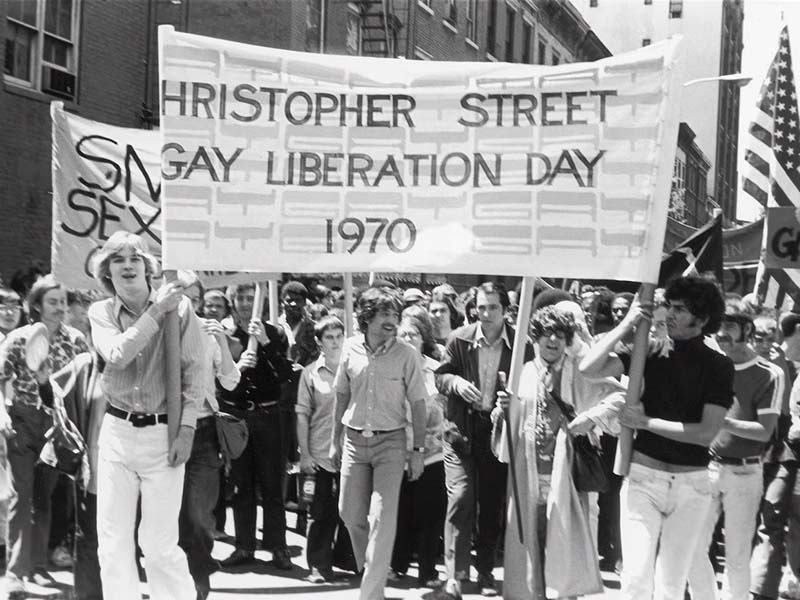
A look at the Pride movements beyond the city limits – the rainbow in the countryside. An observation by Florian Niederseer and Sebastian Brandstätter.
The Stonewall Riots took place 55 years ago in June. That night, when police raided the famous Stonewall Inn bar on Christopher Street in New York City and the queer people in the bar resisted these measures, marked the first major demonstration by the LGBTQIA+ community.
The Stonewall Riots – the stone that got everything rolling
What’s more, it was the stone that set the ball rolling and which today inspires pride parades all over the world. The Stonewall Riots laid the foundations for queer issues to be taken seriously in public for the first time and for the community to gain visibility in society at large. Many people took this far-reaching event as an example and organised the first rainbow parades in their own cities. Los Angeles, San Francisco, Toronto, but also Amsterdam, Vienna and Hamburg.
Pride parades across the world
Gradually, every major city became a little more colourful in June, the official Pride month. Numerous people still take to the streets for their rights and point out grievances and inequalities that still exist in many societies today. This development threw the public spotlight on the queer community and the issues that bring it to the fore. As a result, these issues became part of the public discourse. Gradually, more and more rights for LGBTQIA+ people were also fought for in Austria.

The last few years have shown that a further development is emerging in relation to Pride parades. While it has become easier and easier to live as a queer person in big cities like Berlin or Vienna, this development seems to be slow to take off in rural regions.
Rainbow flags in the village
For many people in the countryside, this “gayness” only took place in the big city, far away from their own village. Of course, queer people lived and still live in the countryside. However, they are often afraid of social ostracism and exclusion from the community family if they were to come out. They often carry a secret around with them for the rest of their lives. They then often move to the city and live out their true feelings there. Until recently, it was unthinkable for LGBTQIA+ issues to be discussed in small villages or even for a Pride parade to take place in a small town.
In the meantime, however, committed people have come together in various small villages throughout Austria to organise a rainbow parade in their own community. From Mistelbach in Lower Austria to Spittal an der Drau in Carinthia and Unken in the province of Salzburg. Pride parades in the countryside have not been unthinkable for a few years now, but have become a reality. The rainbow flags are no longer only hoisted in Vienna city centre to mark Pride Month, but also in various small villages throughout Austria.
More visibility in the country
This development is a signal for the visibility of LGBTQIA+ people in the countryside. This “gayness” doesn’t just take place in the big cities. Queer people live everywhere, from the largest city to the smallest village. Pride parades in the countryside promote this visibility and create safe spaces for the LGBTQIA+ community in the countryside too.
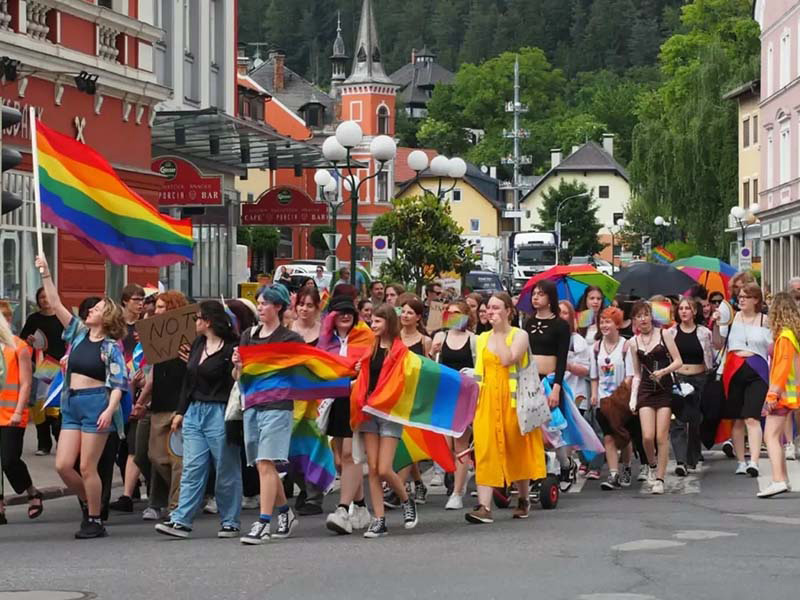
The longer people in the countryside are confronted with this, the more often they see at Pride parades or other events that these are people who love and want to live just as much as they do, the more normal it becomes that queer people are also part of the village community. On the other hand, it is precisely these people who realise that they don’t necessarily have to move to the big city to be who they want to be. When queer visibility and solidarity are also lived in one’s own village, one has the courage to live openly queer and thus be a role model for future generations.
Bad Ischl as a colourful European Capital of Culture
For the first time this year, a Pride Parade will take place in the Salzkammergut in picturesque Bad Ischl. On 15 June, this historic location in the heart of Austria will become a beacon of queer diversity and equality. The exciting thing is that for the first time, a Pride Parade will be supported in its implementation as part of the European Capital of Culture programme.
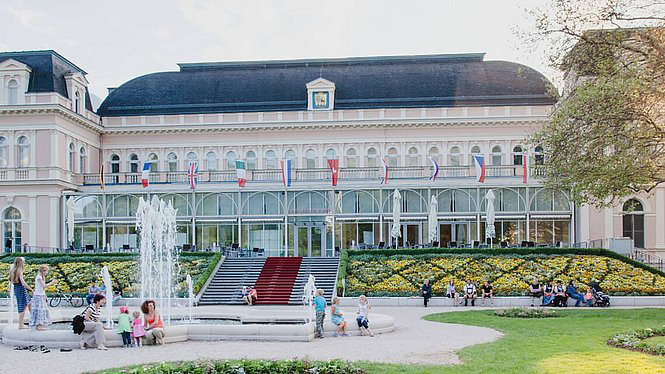
This is a strong sign of how far Pride parades have come both socially and culturally. The title of “European Capital of Culture” awarded to tranquil Bad Ischl this year and the fact that the first Pride Parade in the Salzkammergut is part of the Capital of Culture programme is proof that rainbow flags are part of Austria’s culture alongside traditional costumes and brass band music.
Looking into the future
At pride parades in the big cities, it took some time for people to accept this demonstration and what it stands for, and to respect it as part of their home. The same applies to rainbow parades in the countryside. In the beginning, hostility and disapproving looks are very likely. These will probably never disappear completely. However, with each passing year, pride parades become more and more part of the village community. Gradually, people show more and more interest in why these colourfully dressed people walk through the community together.

The rainbow in the countryside creates visibility and ensures that queer issues are also recognised and discussed outside of the city. Ultimately, it brings everyone together and strengthens the community when everyone can live and love in the way that is best for them. It was a long way from the Stonewall Riots in 1969 to the Pride parades in the small villages of Austria in 2024. Pride parades in the countryside will continue to be a sign of visibility for queer people across the country. They bring people together under the rainbow and are proof that it is possible to stand up for equality and love everywhere.
This will be the Unken Pride 2024
"The Heublumen are a queer association with the aim of supporting rural LGBTQIA+ communities," says the self-description on Facebook. They are doing this again this year, including with Unken Pride 2024. On 20 July, the rainbow parade will pass through the small village in Pinzgau. Queer self-confidence will be on display against the picturesque mountain backdrop. And more and more people are joining in. [Read more]
This will be the Pride Festival Salzburg 2024
“Be visible Schatzi“ will once again be the motto of this year's Pride Festival Salzburg. ‘It's about the visibility of the community in the city - but also about the partners from the city's institutions showing themselves with us,’ says Conny Felice in an interview with gaysalzburg.at in 2023. From 30 August to 8 September, Salzburg's queer community is celebrating its third Pride Festival in a row, once again fulfilling the claim of this motto. [Read more]


